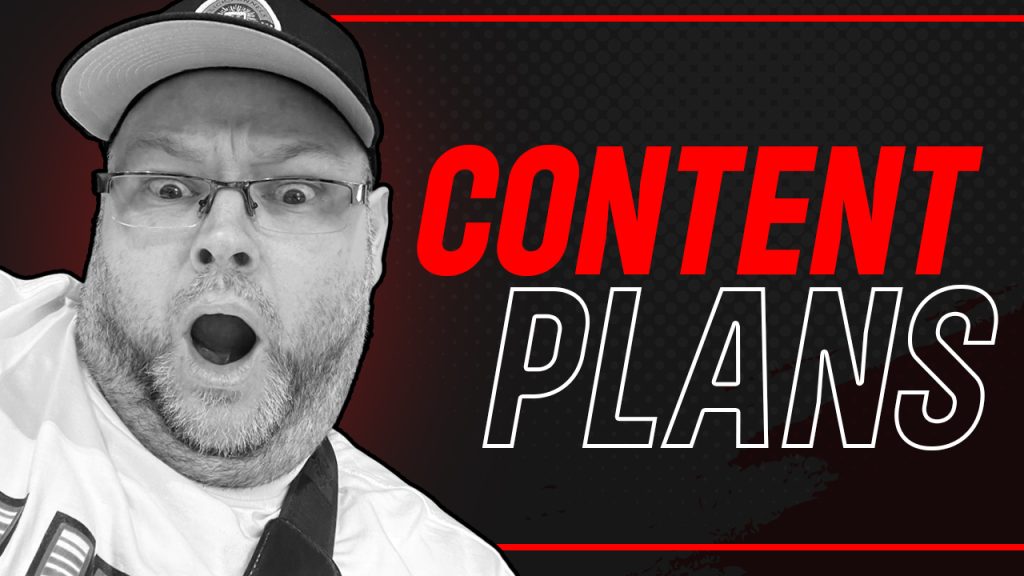
In today’s digital landscape, content is king, but strategy reigns supreme. Crafting compelling content is just one piece of the puzzle; ensuring it reaches the right audience and resonates with them is the true key to success. Welcome to our guide on “Optimizing Your Content Strategy for Maximum Impact,” where we delve into the art and science of creating content that doesn’t just exist but thrives. In this rapidly evolving digital era, where attention spans are fleeting and competition is fierce, a well-thought-out content strategy can mean the difference between obscurity and success. From understanding your audience’s needs to leveraging the right channels and optimizing for search engines, every aspect of your content strategy plays a crucial role in driving engagement, building brand loyalty, and ultimately achieving your business goals. Join us on this journey as we uncover the strategies, tactics, and best practices that will empower you to elevate your content game and make a lasting impact in today’s crowded online landscape.
Harnessing the Potential of Visual Content: Why Images and Videos Matter
In today’s fast-paced digital world, capturing and retaining your audience’s attention is more challenging than ever. With countless brands vying for their share of the spotlight, it’s essential to find ways to stand out. One highly effective strategy? Visual content. Images and videos have the power to convey messages quickly, evoke emotions, and leave a lasting impression on your audience. In this blog post, we’ll explore why visual content matters and how you can harness its potential to elevate your brand and engage your audience effectively.
The Science Behind Visual Communication
Dive into the psychology of visual communication, discussing how the human brain processes images and videos more efficiently than text. Explore concepts such as the dual coding theory and the pictorial superiority effect to illustrate why visual content is so impactful in conveying messages and triggering emotions.
Evoking Emotions and Building Connections
Examine how images and videos have the ability to evoke powerful emotions and create meaningful connections with your audience. Discuss the importance of storytelling through visuals, using real-life examples to demonstrate how brands have successfully leveraged emotional appeal to engage and resonate with consumers.
Increasing Engagement and Memorability
Highlight research and statistics showing that visual content generates higher engagement rates compared to text-only content across various platforms. Explore the concept of the “visual cortex” and its role in processing visual information, emphasizing how incorporating compelling images and videos can make your content more memorable and shareable.
Enhancing Brand Identity and Recognition
Discuss the role of visual content in shaping and reinforcing your brand identity. Explore how consistent use of colors, fonts, and imagery can help establish brand recognition and differentiate your brand from competitors. Provide tips for creating visually cohesive content that aligns with your brand’s values and messaging.
Catering to Different Learning Styles
Recognize that individuals have diverse learning preferences, with some being visual learners who prefer images and videos over text-based content. Discuss the importance of catering to these different learning styles in your content strategy, offering strategies for incorporating visual elements to accommodate visual learners and enhance overall comprehension.
Data-Driven Content: Using Analytics to Inform Your Strategy
In today’s digital landscape, data is king. By harnessing the power of analytics, content creators can gain valuable insights into audience preferences, behavior patterns, and content performance. In this post, we’ll explore the importance of using data-driven approaches to inform your content strategy, providing actionable tips for leveraging analytics tools to optimize your content and drive results.
- Setting Measurable Goals: Start by establishing clear, measurable goals for your content marketing efforts. Whether it’s increasing website traffic, boosting engagement, or driving conversions, defining specific objectives will help you track progress and evaluate the effectiveness of your strategy.
- Tracking Key Metrics: Identify the key performance indicators (KPIs) that align with your goals and track them consistently using analytics tools such as Google Analytics, social media insights, or email marketing platforms. Monitor metrics such as website traffic, bounce rate, time on page, social media engagement, email open rates, and conversion rates to gauge the success of your content efforts.
- Analyzing Audience Insights: Dive deep into audience demographics, interests, and behavior patterns to better understand who your audience is and what content resonates with them. Use analytics data to identify trends, preferences, and pain points, allowing you to tailor your content to meet their needs and preferences more effectively.
- Content Performance Evaluation: Evaluate the performance of your content assets based on data-driven insights. Identify top-performing content pieces in terms of traffic, engagement, and conversions, as well as underperforming content that may require optimization or repurposing. Use A/B testing and experimentation to refine your content strategy and maximize effectiveness.
Data-driven content marketing is essential for maximizing the impact of your efforts in today’s competitive digital landscape.
The Art of Content Distribution: Reaching Your Audience Where They Are
Creating high-quality content is just the first step in a successful content marketing strategy. Equally important is ensuring that your content reaches the right audience at the right time and in the right place. This is where content distribution comes into play. In this blog post, we’ll explore the art of content distribution and share strategies for reaching your target audience across various channels and platforms. By understanding the importance of distribution and mastering the art of reaching your audience where they are, you can maximize the impact of your content and drive meaningful engagement with your brand.
Choosing the Right Distribution Channels
Explore the diverse array of distribution channels available to content marketers, including social media platforms, email marketing, search engines, content syndication networks, and more. Discuss the pros and cons of each channel and provide guidance on selecting the most appropriate channels based on your audience demographics, content format, and marketing goals.
Tailoring Your Content for Different Channels
Emphasize the importance of tailoring your content for each distribution channel to maximize its effectiveness. Discuss best practices for optimizing content formats, lengths, and messaging to align with the unique characteristics and audience expectations of each platform. Provide examples of how brands successfully adapt their content for various channels while maintaining consistency in messaging and branding.
Leveraging Social Media for Content Amplification
Dive into the role of social media in content distribution and amplification. Discuss strategies for building a strong social media presence, engaging with your audience, and promoting your content effectively across platforms such as Facebook, Twitter, LinkedIn, Instagram, and TikTok. Highlight the importance of creating shareable, visually appealing content that resonates with your followers and encourages user interaction.
Harnessing the Power of Email Marketing
Explore the effectiveness of email marketing as a content distribution channel for nurturing leads and building customer relationships. Discuss strategies for segmenting your email list, personalizing content, and delivering targeted, value-driven messages that drive engagement and conversions. Provide tips for crafting compelling subject lines and optimizing email design for maximum impact.
Exploring Paid Distribution Channels
Discuss the role of paid distribution channels, such as pay-per-click (PPC) advertising, sponsored content, influencer partnerships, and native advertising, in expanding your content’s reach and visibility. Highlight the benefits of investing in paid distribution for targeting specific audience segments, driving traffic to your website, and generating leads or sales.
Conclusion
Rank Fortress, we recognize the paramount importance of optimizing content strategy to achieve maximum impact. Through meticulous analysis and strategic planning, we tailor our approach to resonate effectively with our target audience. Our commitment to staying abreast of evolving trends and technologies ensures that we remain at the forefront of content marketing innovation. By continuously refining our strategies and leveraging our expertise, we empower businesses to enhance their online presence and drive meaningful engagement, ultimately propelling them toward sustained success in the dynamic digital landscape.

